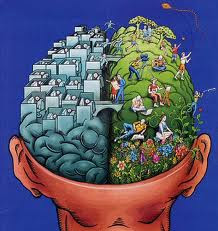Sunday, December 2, 2012
Project #3 C4T #4
Post #1
For C4T #4 I was assigned to Justin Tarte's blog titled, "Life of an Educator". Mr. Tarte is the Director of Curriculum and Personnel in the Union R-XI School District in Union, Missouri. Before he had that job he was an assistant principal at Poplar Bluff Junior High School in Poplar Bluff, Missouri, and before that he taught German at Seckman High School in the Fox C-6 School District in Arnold, Missouri. The first post of Mr. Tarte's that I commented on was called, "A Powerful Lesson in Leadership." In this post, Mr. Tarte tells a story about three blind men that happen to meet each other. One of the blind men says that he heard elephants are very strange animals, which sparks up all of the mens interest in wanting to feel one. A merchant just happens to be walking by, and overhears the conversation. He tells them that he will let them feel one part of his elephant, one at a time. Each blind man got his turn, and then returned to the others. None of them said a word until they all felt the elephant. After the merchant was gone, the three blind men each discussed what they felt. All of their descriptions of the elephant were completely different, because they felt different parts of it. This then brings up Mr. Tarte's question, how can anyone describe the total units of something until they have learned every part?
I wrote back to Mr. Tarte, and told him that if you only have a limited perspective on a subject then your line of thinking is limited to only what you know. Since each one of the blind men touched different parts of the elephant, then each of their views are going to be different. If three foreigners came to the United States, and one went to Texas, one went to New York, and one went to Los Angeles, then they would all have a different perspective of what the United States is like.
Post #2
For post #2 I commented on Mr. Tarte's blog post titled, "A New Essential Curriculum." Mr. Tarte starts off his post by asking if we think students feel like they enter school in morning as a simulation of the 1990s, and then leave at the end of the day in the 21st century. Mr. Tarte then directs us to watch a video that he posted, Rigorous Curriculum Design. This video is about Larry Ainsworth discussing why he wrote the book and seminar Rigorous Curriculum Design. In the video, Ainsworth says the curriculum being used in the classroom hasn't been updated in years, and it is crucial that we change this. He also says that the curriculum needs to be relevant to our rapidly growing environment. I believe he means that society is constantly evolving, and the curriculum we teach our kids should as well.
The next thing on Mr. Tarte's blog post is a second video called, "Education and the Changing World of Work." This video is about the left and right hemispheres of the brain. In the video, it says that for years the workforce has generally been geared to "left hemisphere" workers. As of lately, research is showing a shift to people using their "right hemisphere" more. The video then discusses how the majority of children that have been "left hemisphere" thinkers is now moving towards "right hemisphere thinkers", and that maybe we need to update our SAT and ACT tests to be directed more towards the new age.
I completely agreed that the curriculum needs to be updated. Just like I said above about what the main point of the first video was, If the world is constantly evolving we need to be constantly evolving our education as well. To be honest, it took me a long time to figure out what to say back to Mr. Tarte about the second video. I took in so much information from his post, and I just didn't know where to start. After, a lot of thought I told him that I didn't know much about the research being done about the change in the brain hemispheres, but if that is the case than standardized testing should be updated with it. I've always felt that standardized forms of testing were more geared towards linear problems than to any kind of artistic thinking outside of the box problems. I believe if our society is switching over to the "right hemisphere" way of thinking, than maybe our teaching should as well.
Subscribe to:
Post Comments (Atom)


No comments:
Post a Comment